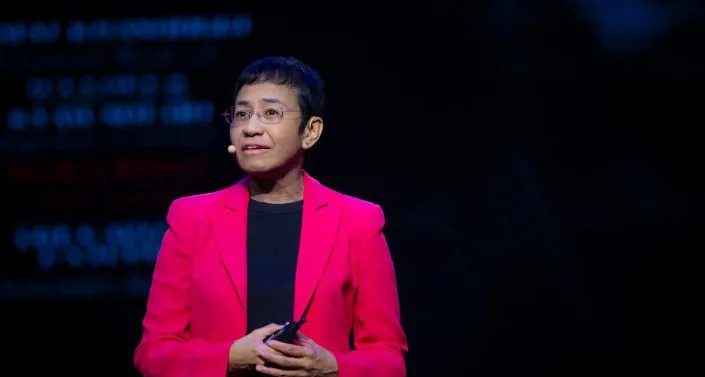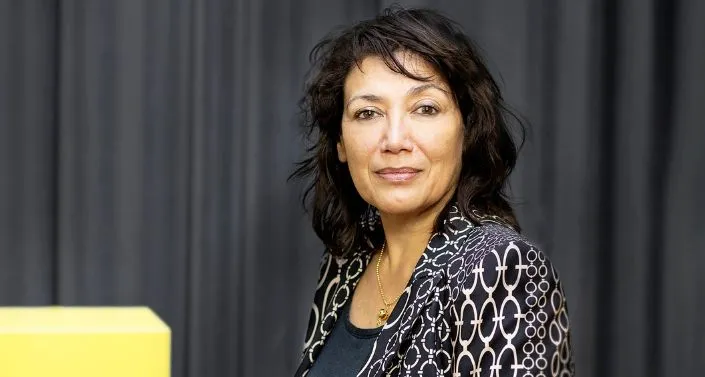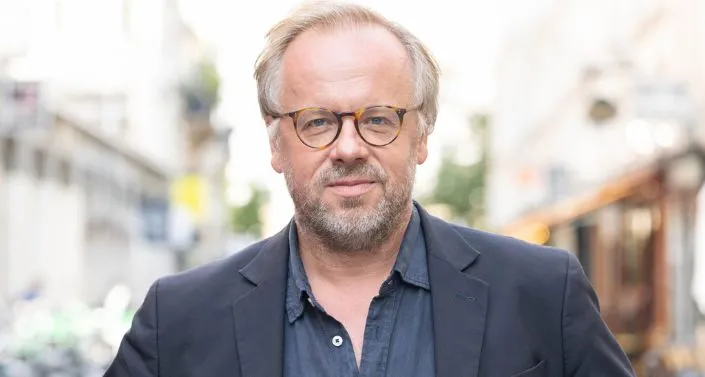Free Press Unlimited supports Reporters Without Borders’ committee to develop ‘AI Charter in Media’

The rapid deployment of artificial intelligence (AI) in the media industry presents a major threat to information integrity. In response to this, Reporters Without Borders’ (RSF) launched an international committee to develop a charter aimed at advising governments on regulating the use of AI in media. Free Press Unlimited partners up with RSF and nine other organisations to help manage this. The committee is chaired by Nobel Peace Prize laureate, Maria Ressa.
The committee consists of 21 distinguished members from 13 different countries, academic and professionals in the fields of journalism, AI and digital technologies. Led by Maria Ressa, a journalist and the 2021 Nobel Peace Prize laureate, this international committee will deliver the results of its work before the end of the year 2023.
The committee's role is to develop a set of principles, rights, and obligations for information professionals regarding the use of AI-based systems.
The initiative will be managed by Reporters without Borders (RSF) in partnership with major NGOs defending journalism, including Free Press Unlimited, media representative organisations for the press and TV as well as investigative journalism consortia. The reputation of the members and the diversity of the partner organisations should make this text a reference in the media industry.
Addressing AI challenges
AI will radically transform the world of journalism. How can we guarantee the right to reliable information when the majority of texts and images will be generated by AI? How can we ensure editorial independence if proprietary language models are used by newsrooms to suggest, proofread, or even write articles? How can we prevent the fragmentation of the information landscape into a multitude of information bubbles fueled by recommendation algorithms?
Around the world, media groups are publishing their own guidelines to steer their use of artificial intelligence. However, given the immense economic incentive to exploit AI for productivity and audience share gains, no player is encouraged to adopt a cautious and reasoned approach regarding information integrity. That's why the committee will develop the foundational principles of shared ethics in media in the era of AI.

Maria Ressa, journalist and Nobel Peace Prize laureate.

Ruth Kronenburg – Executive Director Free Press Unlimited

Christophe Deloire - Secretary General of RSF.
List of the committee members
-
Maria Ressa (chair), 2021 Nobel Peace Prize laureate, journalist and founder of Rappler media (Philippines)
-
Charlie Beckett, Professor at the Department of Media and Communications at the London School of Economics (United Kingdom)
-
Emily Bell, Professor at the Columbia School of Journalism and Director of the Tow Center for Digital Journalism (United States)
-
Veysel Binbay, Director of Technology at the Asian Broadcasting Union (ABU) (Malaysia)
-
Lisa Campbell, Director of Communications at Independent Television Network (ITN) (United Kingdom)
-
Camille François, Faculty, Columbia University School of International and Public Affairs (France)
-
Jodie Ginsberg, President of the Committee to Protect Journalists (CPJ) (United States)
-
Ruth Kronenburg, Executive Director of Free Press Unlimited (Netherlands)
-
Gary Marcus, Professor emeritus of psychology and neural science at New York University, author and entrepreneur (United States)
-
Frane Maroevic, Executive Director of the International Press Institute (IPI) (Austria)
-
Mira Milosevic, Executive Director of the Global Forum for Media Development (GFMD) (Serbia)
-
Tabani Moyo, Convenor of IFEX, Regional Director of the Media Institute of Southern Africa (MISA) (Zimbabwe)
-
Bruno Patino, President of the Franco-German channel Arte (France)
-
Paul Radu, Co-founder of the Organized Crime and Corruption Reporting Project (OCCRP) (Romania)
-
Martha Ramos, President of the World Editors Forum at the World Association of News Publishers (WAN-IFRA) (Mexico)
-
Gerard Ryle, Director of the International Consortium of Investigative Journalists (ICIJ) (Ireland)
-
Stuart Russell, Professor of Computer Science at the University of California, Berkeley and founder of the Center for Human-compatible AI (CHAI) (United States)
-
Eric Scherer, Chair, News Committee at the European Broadcasting Union (EBU) and Director of News MediaLab and International Affairs at France Télévisions (France)
-
Anya Schiffrin, Director of the Specialization in Technology, Media, and Communications at Columbia University (United States)
-
Wairagala Wakabi, Executive Director of the Collaboration on International ICT Policy in East and Southern Africa (CIPESA) (Uganda)
-
Aidan White, founder of the Ethical Journalism Network (EJN) and former Secretary General of the International Federation of Journalists (IFJ) (United Kingdom)
The other partner organisations are
Asia-Pacific Broadcasting Union (ABU)
Committee to Protect Journalists (CPJ)
European Broadcasting Union (EBU)
Ethical Journalism Network (EJN)
Global Forum for Media Development (GFMD)
International Consortium of Investigative Journalists (ICIJ)
International Press Institute (IPI)
Organized Crime and Corruption Reporting Project (OCCRP)
World Association of News publishers (WAN-IFRA)
